Flexible Unboxed Sprint Planning
Do You Have An Energy Budget?


How do you prevent Idea & Task Overwhelm?
As entrepreneurs, there are LOTS of things pulling at our attention…
There’s whatever big project we have running – prepping for a launch, drafting a Webinar, creating or promoting a new program…
And then there are the little everyday biz tasks that need to be kept going, and then… personal needs, family concerns, health maintenance, and… oh.. don’t forget to occasionally drink water and pee.
Keeping track of it all, having a plan, and managing the influx of ideas – it can all feel overwhelming – ask me how I know!
Sustainability in marketing and content is vitally important, so I’ve pulled together for you here, a “magickal,” entrepreneur-specific, UNBOXED and very flexible version of what is known in the techie world as “sprint planning.”
This should help!
#1 - Extracting the Key Elements & Brain Dump.
So the basic premise lying underneath this strategy is considered to be “sprint planning” and there is an entire methodology behind it.
But for our purposes today, I’m going to extract the key elements and then convert it into usage for an entrepreneur who’s doing marketing work.
So the very first step is to pour everything out of your head. All of those things that are floating around in your mind, everything from client work that you may be doing to writing your next blog, to putting on your next webinar and all of the pieces and elements that go into each of those things – Take all of that and put it down onto a page in no particular order.
It’s kind of like a brain dump.
Just kind of get everything out that’s floating around in your mind that you have to do want to do, would like to do, perhaps one day aspire to do, but it isn’t feasible for you to do it right now, but it’s still kind of tickling the back of your mind and filling up energy and space in your mind.
Take all of that, put it onto a piece of paper, write everything down.
And actually I recommend that you don’t number it because then you might start to feel like you’re trying to organize it already into priorities. And right now the purpose is simply to just get it all out. So put all of it down on a big sheet.
#2 - Weighting Tasks by Bandwidth & Energy.
Once you have it all down on that sheet, have a look at everything that’s there.
Slowly begin to identify which things feel like they are the most urgent priority.
For example, if you already have a webinar planned and it’s happening this month, the elements that correspond with that webinar are probably more urgent. In contrast there may be a “for fun” project that could wait another month or two.
Just identify the things that seem like they are the most urgent and the things you think you wish to include in what we’re going to call the next sprint.
And that is usually a two week period.
Now you can adjust this to accommodate your work style.
I like to do it for the whole upcoming month and then break it further down into weekly. But it’s easier if you adjust it to how you like to work.
Once you’ve identified what is going to be included in your next upcoming sprint, put a star next to those items.
The best way to ensure that you don’t get yourself overwhelmed and spread too thin, or include more in that sprint than you can actually accommodate with your own bandwidth, is to weight the items.
Decide: What is the maximum weight that you want to have in that timeframe? What is your personal maximum bandwidth for those 2 weeks?
The “weight” does not correspond to anything in particular, like number of minutes, etc., because sometimes things take more time or less time than we actually expect them to.
And so it’s really more like how HEAVY does the item feel? How big does it feel? How much bandwidth will it take?
And that includes everything from actual time, but also your personal expenditure of energy.
So for example, if getting onto a live stream or producing and delivering a webinar takes a lot more energy from you than writing 5 blogs does, then incorporate that understanding into how you weight that item.
If you’re adding a very draining task or a very draining activity for you, weight that item heavily enough that perhaps that’s the only item in your sprint.
And if you’re delivering a Webbie, and that Webbie is a LOT for you, then it may just be that by the time you are finished producing and delivering and recording and editing, and then getting out the emails and all of the components involved in that – you’re at the extent of your energetic bandwidth for that sprint.
And maybe producing, delivering, and following up on a Webinar weighs, say, 20 pounds, whereas writing five blogs only weighs 10 pounds.
(Or, it could be the reverse, it depends on you and your energy.)
But if you’ve allotted 20 pounds total to this 2-week sprint, then you can either run that 20-pound webinar, and nothing else, or you can write those five blogs, and then still do another 10-pounds of activity.
It’s all about weighting activities and tasks per your own unique bandwidth and energetic makeup.
#3 - Leave Space & Remember Maintenance.
Be sure to also budget for uncertainty, unexpected time eaters, and some things taking longer than expected.
If you block in oodles of tasks into a sprint, and the first thing on the list takes three times as long as expected, the rest if the sprint must be rearranged. Realistic timeframes for activities is important.
How long has that task taken in the past? Have there been previous tech glitches you want to account for in advance, to reduce the stress of a time crunch?
Equally important is to make sure your schedule allows space for self-care when needed, adequate rest and sleep, eating and mindset activities to support your marketing gains.
Overwhelming your calendar and neglecting mindset is one of the fastest ways to facilitate a failure after all that hard work. And, a relaxed mind is a creative mind.
Your sprint should include normal routines that are important for you in order to be successful in accomplishing your goals.
We don’t necessarily list those things into the sprint, but incorporate that understanding into your energy budget. For example, 15 minutes every morning to set the tone for the day is non-negotiable schedule item for me, and it includes hypnosis or meditation time. Identify whatever your non-negotiables are, to accommodate them in your plan for that particular sprint period.
#4 - Prioritize, Place in Calendar & Be FLEXIBLE.
Now you can prioritize tasks, and there are some things that naturally need to happen first because the other items will build on those.
So you have to write the email sequence before you can send out the emails, or you have to write the sales copy before you can post it and promote the webinar into different places.
When I’m doing this, I like to have my calendar for the month spread out. So I have a little planner that I use that shows me the calendar at a glance, and I can have a look and say, I think these items need to happen in the first two or three days.
And then I may have a larger goal for that week to keep me focused, like I’ll say I will have the next three blogs finished by the end of the week, or I’d like to have the email sequence designed for an upcoming freebie.
Then you can begin tentatively marking dates on your calendar for when you expect to be able to work on these different things.
And here I would like to mention an aspect of this “magickal planning” which is an UNBOXED, flexible plan.
The number one thing I stress anytime I discuss planning – because for me, a creative who sometimes gets spontaneous ideas – it’s extremely important to me to also have a feeling of freedom, a feeling of creativity and space.
So I always go into this saying, make it a flexible plan and not a rigid plan.
If you write down that you’re going to work on X, Y & Z next Monday, and you put that in your calendar as part of your sprint plan, make sure that you’re comfortable within yourself that it can be adjusted to accommodate:
1. LIFE (not feeling well, unexpected issues, etc.,
2. INSPIRATION – I’m not talking about derailing the plan or procrastinating for hours scrolling socials, but I do mean the necessary practice of following flow.
If there are 3 things on that list, and it’s the third one calling to you the most, we don’t have to be so rigid to say, well I must do the first 2, and keep the order… Do the 3rd one that’s calling your name, then do the other two…
All three are still getting done, right?
You don’t have to box yourself into teeny, tiny, rigid plans to be successful.
You just need to ultimately get the sh** done, right?
If you allotted 5 hours to work, got the work done in 3, and then took a 1-hour nap and watched netflix, does it f-ing matter??
That’s the way this “magickal” version sprint planning can work – When you get through your list, through everything planned out for that two week period, and you find that you still have bandwidth or capacity remaining, you can make the choice to either go ahead and scoop up something slated for a future sprint to work on, OR, relax and celebrate what you accomplished.
It’s FLEXIBLE, and you’re in charge!
xx
Quickie Take-Away
Less than 5 minutes.
Quickly write down what a custom energy budget for YOUR planning might look like!

P.S.
Here are some of the tools I use for Content and am an affiliate for.
They can help support & simplify your Content Marketing process.
AND if you opt to try one, we may both receive a perk!

Freebie for You…

If you want to make Content Planning much EASIER, you might enjoy this free tool to help you set up your very own Magickal Content Library.
Grab it here!










